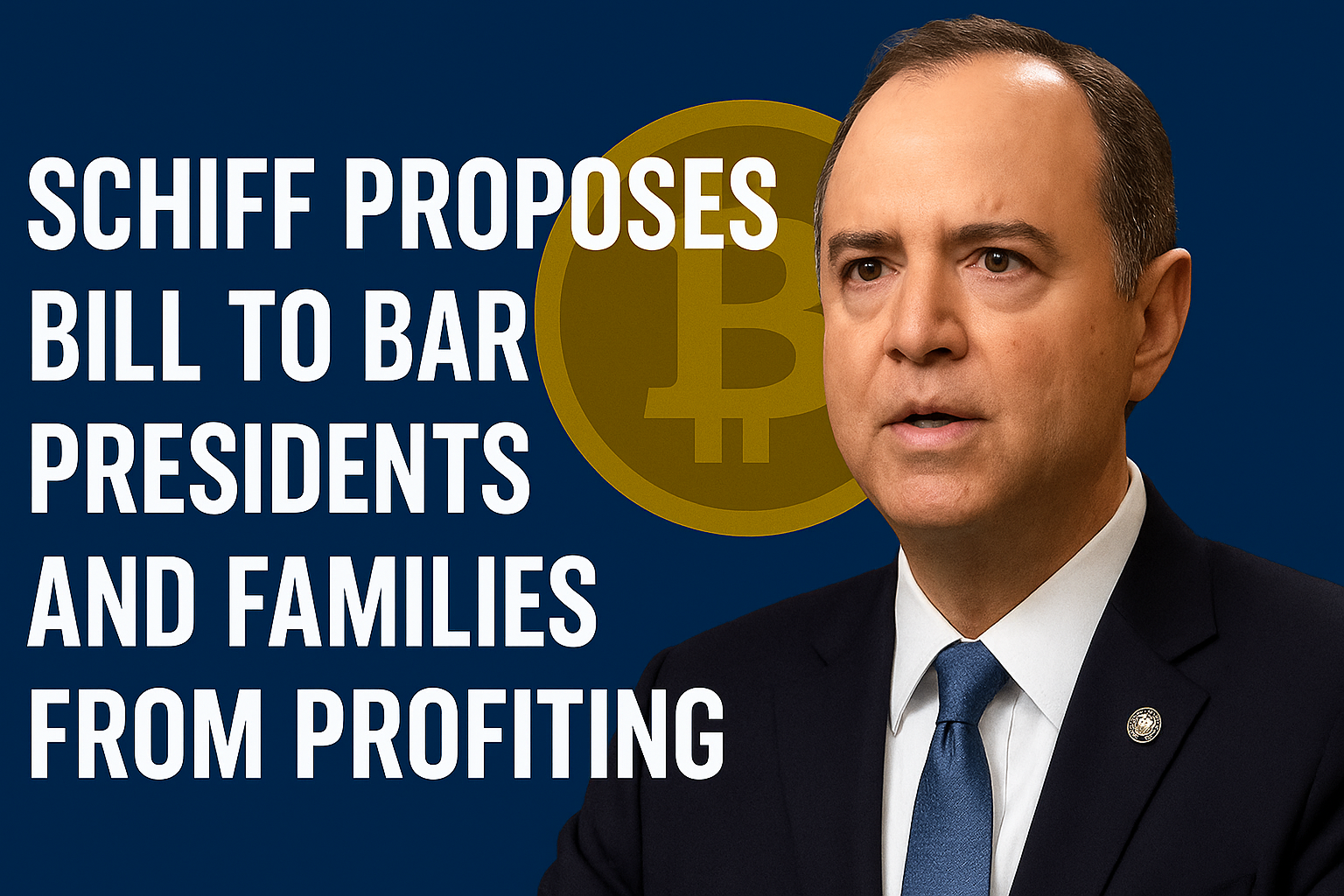Aiming to Restore Trust in Public Office
U.S. Senator Adam Schiff has introduced a new legislative proposal that would prohibit current presidents, vice presidents, and their immediate family members from engaging in cryptocurrency-related financial activities while holding office. This bold step comes amid ongoing concerns about ethical standards and potential conflicts of interest in the highest branches of government.
The bill, introduced as part of a wider reform package, seeks to ensure that public officials cannot use their positions for personal financial benefit, especially when it comes to rapidly evolving markets like cryptocurrencies. With the crypto space gaining influence in politics, Schiff aims to set clear boundaries to protect democratic integrity.
The Scope of the Proposed Ban
The legislation would apply to all sitting presidents and vice presidents, along with their spouses and children. It restricts them from buying, selling, or trading in cryptocurrencies such as Bitcoin, Ethereum, or any other digital assets. The bill goes further by prohibiting indirect crypto-related financial activity through trusts, third-party accounts, shell companies, or blind investment vehicles.
This comprehensive approach is intended to prevent any potential workaround that may allow political leaders to quietly benefit from crypto-related investments while claiming to remain neutral or uninvolved.
Why Crypto? Why Now?
Over the past few years, cryptocurrencies have moved from fringe assets to the mainstream financial conversation. As adoption increases and more Americans participate in the digital economy, the political spotlight on crypto has intensified. With several lawmakers investing in digital assets or receiving campaign donations from crypto-related businesses, the risk of influence, favoritism, or insider trading has become a growing concern.
Senator Schiff’s bill is being introduced not in reaction to a specific scandal, but as a proactive safeguard against ethical violations in the future. Schiff emphasized the need to ensure the public’s trust in leadership, especially as technology and finance continue to intersect in new, complex ways.
Broader Political Context
The move echoes similar calls in recent years to ban members of Congress from trading stocks while in office. Schiff’s proposal builds on this momentum, extending the scope of restrictions to the executive branch and zeroing in on digital assets—a space where regulation is still evolving.
This bill also sends a message that digital finance should not become a backdoor for enrichment among political elites. By setting a precedent at the top levels of government, Schiff hopes to encourage broader reforms and stricter oversight throughout Washington.
Will It Gain Support?
The future of the bill depends on whether it garners bipartisan backing. While ethics reform often receives general support from both sides of the aisle, specifics—especially involving emerging industries like crypto—can become politically charged.
Nevertheless, Schiff’s proposal adds to the growing movement to draw clearer ethical lines in public service. It reflects a wider recognition that as financial technologies evolve, so must the rules that govern those in power.



